Since Fidel Castro’s death, the mainstream U.S. news media has been on a flashback to the Cold War presenting one-sided denunciations of the “communist dictator,” but there is another side to the story, explains Marjorie Cohn.
By Marjorie Cohn
When Fidel Castro died on Nov. 25 at the age of 90, we lost one of the most remarkable leaders of the Twentieth Century. No other head of state has so steadfastly stood up to the United States and survived.
In 1959, the Cuban Revolution, led by Castro and Ernesto “Che” Guevara, overthrew the ruthless Fulgencio Batista, who had come to power in a coup d’état. Batista’s government had protected the interests of the wealthy landowners. In order to control the populace, Batista had carried out torture and public executions, killing as many as 20,000 people. During his regime, Batista was supported — financially and militarily — by the United States. Indeed, the U.S. Mafia’s gambling, drug and prostitution operations flourished under Batista’s government.
Led by Castro, the new Cuban government expropriated U.S.-owned property, companies and holdings in Cuba. The United States responded with a punishing economic embargo, which later became a blockade. The CIA attempted unsuccessfully to overthrow the revolution in the disastrous 1961 Bay of Pigs invasion.
Since 1959, the U.S. government and the expatriated Cuban-Americans who fled Cuba after the revolution have tried mightily to topple the Castro government, without success. Castro survived more than 630 assassination attempts.
Legacy of Fidel Castro
“What’s amazing here is you’ve got a country that’s suffered an illegal economic blockade by the United States for almost half a century and yet it’s been able to give its people the best standard of health care, brilliant education,” Ken Livingstone, former mayor of London, said in 2006. “To do this in the teeth of an almost economic war is a tribute to Fidel Castro.”
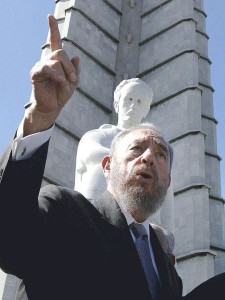
Cuban leader Fidel Castro speaking at the Jose Marti Monument in 2003. (Photo credit: Ricardo Stuckert/ABr.)
Castro practiced a unique form of internationalism. Nelson Mandela credited Cuba with helping to bring down the system of apartheid in South Africa. Cuba fought with the revolutionaries in Angola. And Cuba regularly sends doctors to other countries and provides foreign nationals with free medical education.
As Nelson Valdes noted in 2013, Castro, together with others, “shaped a foreign policy and national movement around the fundamental concept of national sovereignty, yet devoid of any self-centered nationalism.” He added, “This unique form of national self-determination incorporated other countries on an equal footing. In fact, national sovereignty and solidarity had precedence over ideology.” Thus, Valdes wrote, “Cuba has aided countries, despite the economic and political differences they may have.”
In 1953, in what is considered the beginning of the Cuban Revolution, Castro, his brother Raul and more than 100 other rebels mounted a failed attack against the Batista regime at the Moncada Barracks. Castro was arrested, tried, sentenced to 15 years in prison and released in an amnesty deal two years later.
At his trial, Castro famously said in his defense, “Condemn me, it does not matter. History will absolve me.”
U.S. Interference in Cuba
The U.S. economic embargo was initiated in 1960 by President Dwight D. Eisenhower in response to a memorandum written by L.D. Mallory, a senior State Department official. Mallory proposed “a line of action that makes the greatest inroads in denying money and supplies to Cuba, to decrease monetary and real wages, to bring about hunger, desperation and the overthrow of the government.”
Cuba turned to the U.S.S.R. for assistance, which supported the Cuban Revolution until the collapse of the Soviet Union in 1991. In 1962, in response to the stationing of U.S. nuclear missiles in Turkey, Soviet leader Nikita Khrushchev placed nuclear missiles in Cuba. After a tense standoff, Khrushchev and U.S. President John F. Kennedy negotiated a withdrawal of the missiles from both Cuba and Turkey.
The economic blockade continues to this day. It is an illegal interference in the affairs of the Cuban people, in violation of the International Covenant on Civil and Political Rights and the Charter of the Organization of American States. Every year for 26 consecutive years, the United Nations General Assembly has called on the United States to lift the blockade, which has cost Cuba in excess of $ 1 trillion.
U.S. meddling in Cuban affairs did not start in 1959. Since 1898, when the United States intervened in Cuba’s war for independence, the U.S. government has tried to dominate Cuba. The United States gained control of Guantanamo Bay in 1903, when Cuba was occupied by the U.S. Army after its intervention in Cuba’s war of independence against Spain.
Cuba was forced to accept the Platt Amendment to its constitution as a prerequisite for the withdrawal of U.S. troops from Cuba. That amendment provided the basis for a treaty granting the United States jurisdiction over Guantanamo Bay.
The 1903 agreement gave the United States the right to use Guantanamo Bay “exclusively as coaling or naval stations, and for no other purpose.” A 1934 treaty maintained U.S. control over Guantanamo Bay in perpetuity until the United States abandons it or until both Cuba and the United States agree to modify it. That treaty also limits its uses to “coaling and naval stations.”
None of these treaties or agreements gives the United States the right to use Guantanamo Bay as a prison, or to subject detainees to arbitrary detention or torture, cruel, inhuman or degrading treatment, which have been documented at the prison.
Castro, who called the Guantanamo base “a dagger plunged into the heart of Cuban soil,” refused to cash the rent checks the U.S. government sends annually. “An elemental sense of dignity and absolute disagreement with what happens in that portion of our national territory has prevented Cuba from cashing those checks,” he noted. The United States, according to Castro, transformed the Guantanamo base into a “horrible prison, one that bears no difference with the Nazi concentration camps.”
It is no accident that President George W. Bush chose Guantanamo Bay as the site for his illegal prison camp. His administration maintained that Guantanamo Bay is not a U.S. territory, and thus, U.S. courts were not available to the prisoners there. But, as the Supreme Court later affirmed, the United States, not Cuba, exercises exclusive jurisdiction over Guantanamo Bay, so habeas corpus is available to prisoners there.
Amnesty International aptly described the irony: “Given the USA’s criticism of the human rights record of Cuba, it is deeply ironic that it is violating fundamental rights on Cuban soil, and seeking to rely on the fact that it is on Cuban soil to keep the U.S. courts from examining its conduct.”
Since the revolution, anti-Cuba organizations based in Miami have engaged in countless terrorist activities against Cuba and anyone who advocated normalization of relations between the U.S. and Cuba. These terrorist groups have operated with impunity in the United States with the knowledge and support of the FBI and CIA.
For example, Ruben Dario Lopez-Castro, associated with several anti-Castro organizations, and Orlando Bosch, who planted a bomb on a Cubana airliner in 1976, killing all 73 people aboard, “planned to ship weapons into Cuba for an assassination attempt on [Fidel] Castro.”
In the face of this terrorism, the Cuban Five came from Cuba to gather intelligence in Miami in order to prevent future terrorist acts against Cuba. The men peacefully infiltrated criminal exile groups. The Five turned over the results of their investigation to the FBI. But instead of working with Cuba to fight terrorism, the U.S. government arrested and convicted the five men of unfounded charges.
Human Rights in Cuba
The International Covenant on Civil and Political Rights and the International Covenant on Economic, Social and Cultural Rights contain two different sets of human rights, respectively.
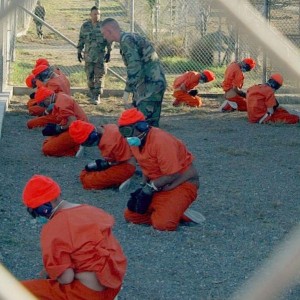
Some of the original detainees jailed at the Guantanamo Bay prison, as put on display by the U.S. military.
Civil and political rights include the rights to life, free expression, freedom of religion, fair trial, self-determination; and to be free from torture, cruel treatment and arbitrary detention.
Economic, social and cultural rights comprise the rights to education, health care, social security, unemployment insurance, paid maternity leave, equal pay for equal work, reduction of infant mortality; prevention, treatment and control of diseases, as well as the rights to form and join unions and strike.
The U.S. government criticizes civil and political rights in Cuba while disregarding Cubans’ superior access to universal housing, health care, education and its guarantee of paid maternity leave and equal-pay rates.
Unlike in the United States, health care is considered a right in Cuba. Universal health care is free to all. Cuba has the highest ratio of doctors to patients in the world, at 6.7 per 1,000 people. The 2014 infant mortality rate was 4.2 per 1,000 live births — one of the lowest in the world.
Free education is a universal right, up to and including higher education. Cuba spends a larger proportion of its gross domestic product on education than any other country in the world.
Cuban law guarantees the right to voluntarily form and join trade unions. Unions are legally independent and financially autonomous, independent of the Communist Party and the state. Unions have the right to stop work they consider dangerous. They have the right to participate in company management, to receive management information, to office space and materials, and to facility time for representatives. Union agreement is required for layoffs, changes in patterns of working hours and overtime, and for input on the annual safety report.
As of 2018, the date of the next Cuban general election and the date Raul Castro has promised to step down from the presidency, there will be a limit of no more than two five-year terms for all senior elected positions, including the president. Anyone can be nominated to be a candidate. It is not required that one be a member of the Communist Party. No money can be spent promoting candidates and no political parties (including the Communist Party) are permitted to campaign during elections. Military personnel are not on duty at polling stations; school children guard the ballot boxes.
In 2006, the World Wildlife Fund, a leading global environmental organization, determined that Cuba was the only country in the world to have achieved sustainable development.
Meanwhile, the U.S. government has committed serious human rights violations on Cuban soil, including torture, cruel treatment and arbitrary detention at Guantanamo. And since 1960, the United States has expressly interfered with Cuba’s economic rights and its right to self-determination through the economic embargo.
Cuba is criticized for its restrictions on freedom of expression. Castro learned from the Guatemalan experience what would happen if he did not keep a tight rein on his revolutionary government. Jacobo Arbenz, a democratically elected president of Guatemala, carried out agrarian land reform, which expropriated uncultivated lands, compensated the owners and redistributed them to the peasantry. This program raised the hackles of the United Fruit Company, which enlisted the U.S. government to overthrow Arbenz. The CIA and the State Department obliged.
Stephen Kinzer wrote in his biography of the Dulles brothers that Guevara “told Castro why [the CIA coup in Guatemala] succeeded. He said Arbenz had foolishly tolerated an open society, which the CIA penetrated and subverted, and also preserved the existing army, which the CIA turned into its instrument. Castro agreed that a revolutionary regime in Cuba must avoid those mistakes. Upon taking power, he cracked down on dissent and purged the army.”
Obama Opens the Door
In 2006, Castro suffered a serious illness and turned over the reins of power in Cuba to his brother Raul, who became president in 2008.
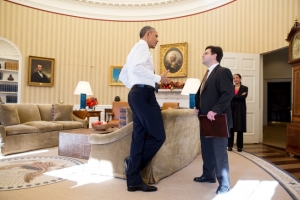
President Barack Obama talks with Ricardo Zuniga, National Security Council’s Senior Director for Western Hemisphere Affairs, after the President delivered a statement on Cuba, in the Oval Office, Dec. 17, 2014. National Security Advisor Susan E. Rice watches from the doorway. (Official White House Photo by Pete Souza)
On March 21, 2016, President Obama and Raul Castro held a joint press conference at the Palace of the Revolution in Havana. Obama notably declared, “Perhaps most importantly, I affirmed that Cuba’s destiny will not be decided by the United States or any other nation. Cuba is sovereign and, rightly, has great pride. And the future of Cuba will be decided by Cubans, not by anybody else.” Unlike all prior U.S. presidents, Obama understands the significance of treating Cuba with respect.
This is a lesson Donald Trump will hopefully learn. The President-elect has sent mixed signals about whether he will continue Obama’s steps toward normalization of relations between the U.S. and Cuba. The businessman in him will be receptive to investment, and, indeed, hotel building, in Cuba.
But, pandering to Cuban-Americans in Florida during the election, Trump talked tough against Cuba’s government. “Many of our leaders seem to view Florida’s Cuban conservatives, including the assassins and terrorists among them, as People Who Vote,” Alice Walker wrote in The Sweet Abyss.
On the Cuban side, Raul Castro has made it clear that normalization cannot occur until the blockade is lifted and the United States returns Guantanamo to Cuba. In an op-ed in The New York Times, Harvard lecturer Jonathan Hansen wrote, “It is past time to return this imperialist enclave to Cuba,” adding, “It has served to remind the world of America’s long history of interventionist militarism.”
Normalization of relations will not happen overnight, Rene Gonzalez, one of the Cuban Five, told me when I visited Cuba last year. “We have to remember that relations between the countries have never been normal.” Antonio Guerrero, another member of the Five, added that normalization will require “the dismantling of the whole system of aggression against Cuba, especially the blockade.”
Castro survived 90 years. And Castro’s revolution survives, notwithstanding 57 years of aggression and assassination attempts by the United States.
“Fidel Castro was an authoritarian. He ruled with an iron fist. There was repression and is repression in Cuba. In Fidel’s kind of argument, he did it in the name of a different kind of democracy, a different kind of freedom — the freedom from illness, the freedom from racism, the freedom from social inequality,” Peter Kornbluh, director of the Cuba Documentation Project, told Amy Goodman on Democracy Now! “And Cuba has a lot of very positives that all the other countries that we don’t talk about don’t have. There isn’t gang violence in Cuba. People aren’t being slaughtered around the streets by guns every day. They defeated the Zika virus right away. There is universal health care and universal education.”
In a 1998 NBC interview with Maria Shriver, Castro wryly noted, “For a small country such as Cuba to have such a gigantic country as the United States live so obsessed with this island, it is an honor for us.”
History has absolved, and promises to continue to absolve, “El Comandante” Fidel Castro.
Marjorie Cohn is professor emerita at Thomas Jefferson School of Law, former president of the National Lawyers Guild and deputy secretary general of the International Association of Democratic Lawyers. Her most recent book is “Drones and Targeted Killing: Legal, Moral, and Geopolitical Issues.” Visit her website and follow her at Twitter @marjoriecohn.
This article first appeared on Truthdig [http://www.truthdig.com/report/item/the_remarkable_legacy_of_fidel_castro_20161202]
.

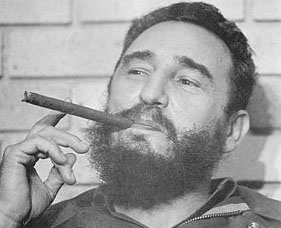
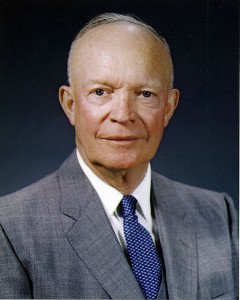
Interesting. Freedom is never abstract, except when couched in the language of constitutions and charters of rights — documents which often conceal, rather than reveal the myriad ways in which freedom is regularly denied in capitalist democracies. The denial of education and healthcare to millions by turning them into expensive commodities is, in its own way, a form of repression every bit as palpable as the repression practiced by the communist government of Cuba, practiced (apparently) in order to ensure freedom from ignorance and freedom from treatable illness, injury, and premature death.
Yeah, but … how many innocents did suffer under his iron fist? I knew Cuban refugees in Miami and they hated Castro. Where can I get an unbiased look at Castro and Cuba?
Try listening to both sides and consider each author’s agenda. I also knew some Cuban refugees in Florida. They were, like most groups of people, a mixed bag. A family member had a Cuban family living next door. You couldn’t have asked for better neighbors. Then there were those who liked the system under Batista and who didn’t have any problem with the corruption and the poverty. On the Fidel side supporters are mostly concerned with the improvements in delivering essential services to the people such as health care and education for all. They focus on that and consider Castro’s authoritarian way a price that had to be paid for the benefits.
There were also residents in South Florida who feared some of the Cuban refugees would transplant the corruption that existed in Cuba to Florida. There have been news reports that indicate their fears were justified.
Note and ponder this point from Marjorie Cohn’s excellent essay: “Stephen Kinzer wrote in his biography of the Dulles brothers that Guevara “told Castro why [the CIA coup in Guatemala] succeeded. He said Arbenz had foolishly tolerated an open society, which the CIA penetrated and subverted, and also preserved the existing army, which the CIA turned into its instrument. Castro agreed that a revolutionary regime in Cuba must avoid those mistakes. Upon taking power, he cracked down on dissent and purged the army.””
jimbo,
Assuming you are in the United States, first, get out of Miami, get away from “Cuban” Miamistas. Go to a United States part of the United States. Then talk to the people. Don’t go to capitals and talk to politicians. Don’t go to bureaucratic offices and talk to bureaucrats. Don’t go to any mainstream media and talk to System Booster. Don’t go to any upper echelons and talk to lawyers or bankers.
And don’t talk to anyone who was in on the 2000 to 2009 housing swindles, or any who profited from the U.S. government bailouts and the Fed pumping money into the Elite-System through the stock markets (Fed money in) and the manipulator-players, the hedge-funds, banks, high-speed traders, algorithm manipulators, etc (Fed money out).
All those aside, go talk to real people, ones really living, to trying to make a living, picking crumbs let slip away, or carelessly thrown by the Gangster-Elite, the Commercial Aristocracy aristocrats.
Talk to them about themselves and their situations. hey will give you an unbiased look at the situation in the USA today, who are equivalent to the people of Cuba back when it was run by a Batista Government, which was run, in turn, by “American” (based in the USA) gangsters (not Italian ones like portrayed in the movies made by an industry the “American” gangsters also own today, along with the rest of the USA).
Then you can go schmooz with today’s America’s gangsters and those of the government they own and who “do OK” by working for them, to get an unbiased point of view from them.
Then you can go back to the Miami “Cubans” and you can ask them what their grandfathers were and were doing in Cuba before they were helped to evacuate and put on payrolls by the U.S. CIA.
How does this work? Today the USA is owned by the same people who owned Cuba in the 1940’s and 50’s, and owned its government. Today the people of the USA are, not as far down as the people of Cuba were in 1956, but on their way to there. Today the government of the USA is equivalent to the Batista government of then. Next year things might improve in the US government situation, maybe, at least Trump seems to have the gangster-elite worried, and they do seem to be, like then in Cuba, losing control. Maybe their are just paranoid, nervous after losing Cuba. Maybe they will be able to repress their problems away, as they were able, for a while, in Cuba. Trump doesn’t look like a Castro…
Do the above, do some comparative thinking, you should be able to come as near as you might ever be able to gaining an unbiased view. Just interpolate between Cubans, Miamian displaced “Cuban” elite-supporter “CIA Assets” (the CIA being a Gangster Elite Asset) and the people and the Gangsters and Gangsters’ Assets in the USA today.
Adios Fidel…!!
Cuba developed a drug for fighting cancer, it’s name is CImavax. The Roswell Park Cancer Institute in America is now testing it.
https://www.roswellpark.org/cancertalk/201509/bringing-cuba’s-lung-cancer-vaccine-states
I knew something wasn’t right when in 1969 while on a ship in the U.S. Navy we had training exercises in Gtmo. Our ship took a couple days off from training to go get some Liberty time in Port Au Prince Haiti. A couple of us from our ship hooked up with some young missionary’s from New York, who had a lot of terrible stories to tell us about Papa Doc, and for the way Papa Doc treated his poor fellow countrymen and woman. What I could not fathom was why we hated Castro so much by imposing sanctions on his nation, but gave Papa Doc a pass, and some financial aid on top of our looking the other way concerning Papa Doc’s crimes committed against his own people. Here was a lesson for me at the tender age of nineteen to see how our State Department could condemn one country for said human rights abuses, while turning a blind eye for another nation considered to be our friend. None of any of this preferential treatment for one nation, while condemnation for another nation, ever made any sense to me, and still doesn’t.
What gets loss in America when reflecting on Cuba, is how bad Batista was. This whole business with Castro could have been very different if America hadn’t had been so wedded to the Corporatocracy, and the Mafia.
“The 2014 infant mortality rate was 4.2 per 1,000 live births — one of the lowest in the world.”
I looked up the numbers for 2015, and found Cuba was at 4.63/1000 and the US at 5.87/1000.
Next the life expectancy at birth for both sexes: Cuba = 79.1 vs US = 79.3 years.
Finally, “health expenditure per capita”. The US of A spends $9403 vs Cuba’s $817 per person per year.
Aren’t Obamacare and Corporate Medicine the greatest things ever?
So the US is breaking another treaty. I’d love to see retired Rear Admiral & smirking little weasel John Kirby explain this one. Most likely he’d accuse the questioner of being a Russian Agent and call Security to throw whoever was asking out the door.
When everything is said and done a person has to ask if citizens of Cuba are better off than they’d have been if Cuba had remained an American Puppet State. Mostly I’m thinking about a body count on this one – would the US have engaged in the horrific practices it did and continues to do in Central America? With Haiti? In my opinion the Cuban Revolution saved the citizens of Cuba from very much worse things than they endured under Castro.
United Nations Development Programme (UNDP) does a Human Development Index as a proxy for a country’s success in achieving human development. It is as an opposition to GDP per capita. It includes education and health care in the index, but also GDP per capita! Naturally the richer countries come out at the top of the pile because of the GDP. But here’s the rub: Cuba at 1/250th of USA’s total GDP scores at 0.77 on the HDI compared to 0.9 for USA. If UNDP were to do a “real” index of social indicators – education, health, hunger, malnutrition, infant mortality – and plotted that against GDP per capita, Cuba would come out at the top, meaning that despite a low national income Cuba achieved so much for its people. All that despite the blockade. As one writer put it: Yes malnourished and homeless Cuban children exist – in Miami.
To go back to Zachary Smith’s comment:>> Infant mortality for 2015, Cuba 4.63/1000, USA 5.87/1000.
Life expectancy at birth for both sexes: Cuba = 79.1, US = 79.3 years.
“Health expenditure per capita”. The USA spends $9403 vs Cuba $817 per person per year. [Why the quote marks?!!]
This last statistic has to be tempered against the GDP’s of the two countries.
Critics of Cuba do tell the truth to some degree when they refer to the poor economic conditions for many people, but they never seem to connect the vicious and immoral embargo applied against the people of Cuba for a half century as the main cause of this economic status. Most of them also seem to not recognize the Cubans who don’t enjoy the toys and junk Wal-Mart sells American consumers but who remain loyal to their own nation and Fidel. Perhaps the refugees fleeing from nations in Central America should try to make it to Cuba where they might find a more hospitable reception. Better still. Perhaps the leaders of these Central American nations who make life miserable for their people should learn and apply some of the lessons that Castro has taught.
Wonderful article! I hope many read this and pass it on. I will send it to every one I know who cares about justice and truth. I’m old enough to remember all this history but my children and grand children know literally nothing about our true recent history, as a result they either have no attitude about Cuba or they are imbued with the idea that Cuba is a terrible dungeon of a place. It would be helpful if Americans were disabused of the false history they have been fed along with their mothers milk.
We have been talking about “fake news” a lot lately and I hope this excellent history by Cohn will underline how much fake news we absorb and for how long this has been going on. Cuba is only one story in a long string of stories that we have been told by our government for over 100 years.
Thank you, Marjorie Cohn, for your excellent history of Fidel Castro, U.S./ the Americas foreign policy, Guantanamo Bay. Taught me a lot I didn’t know and put all the pieces together.